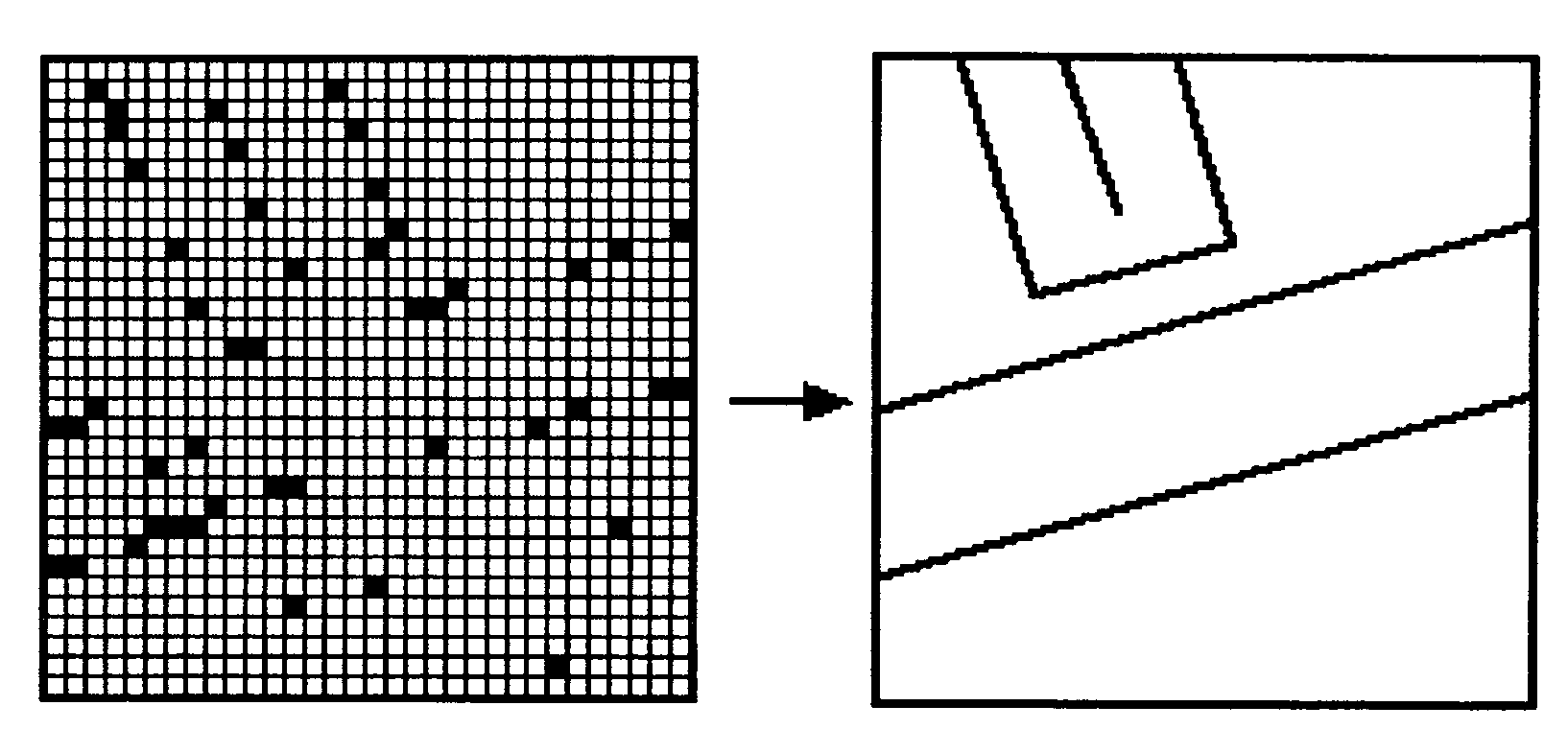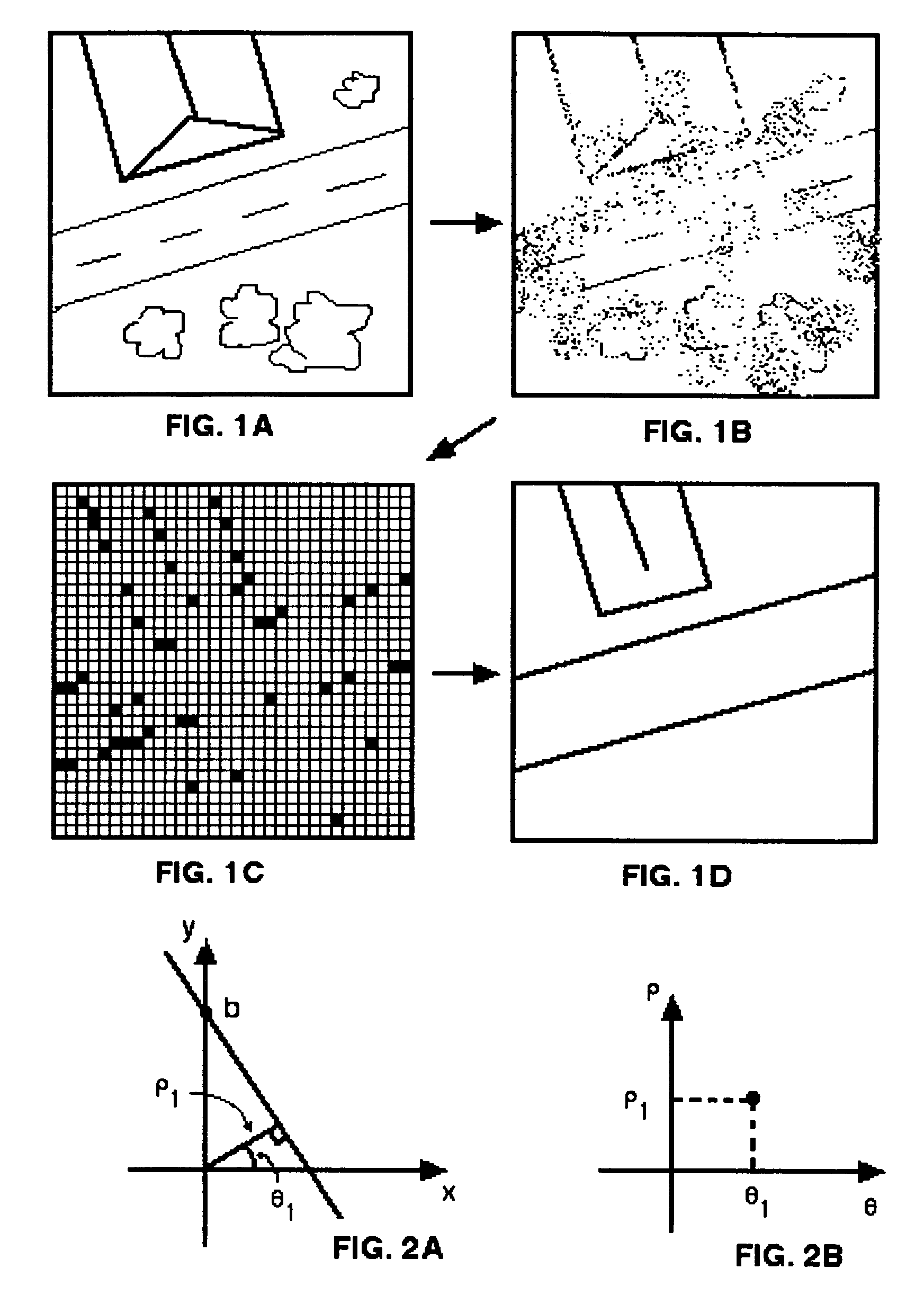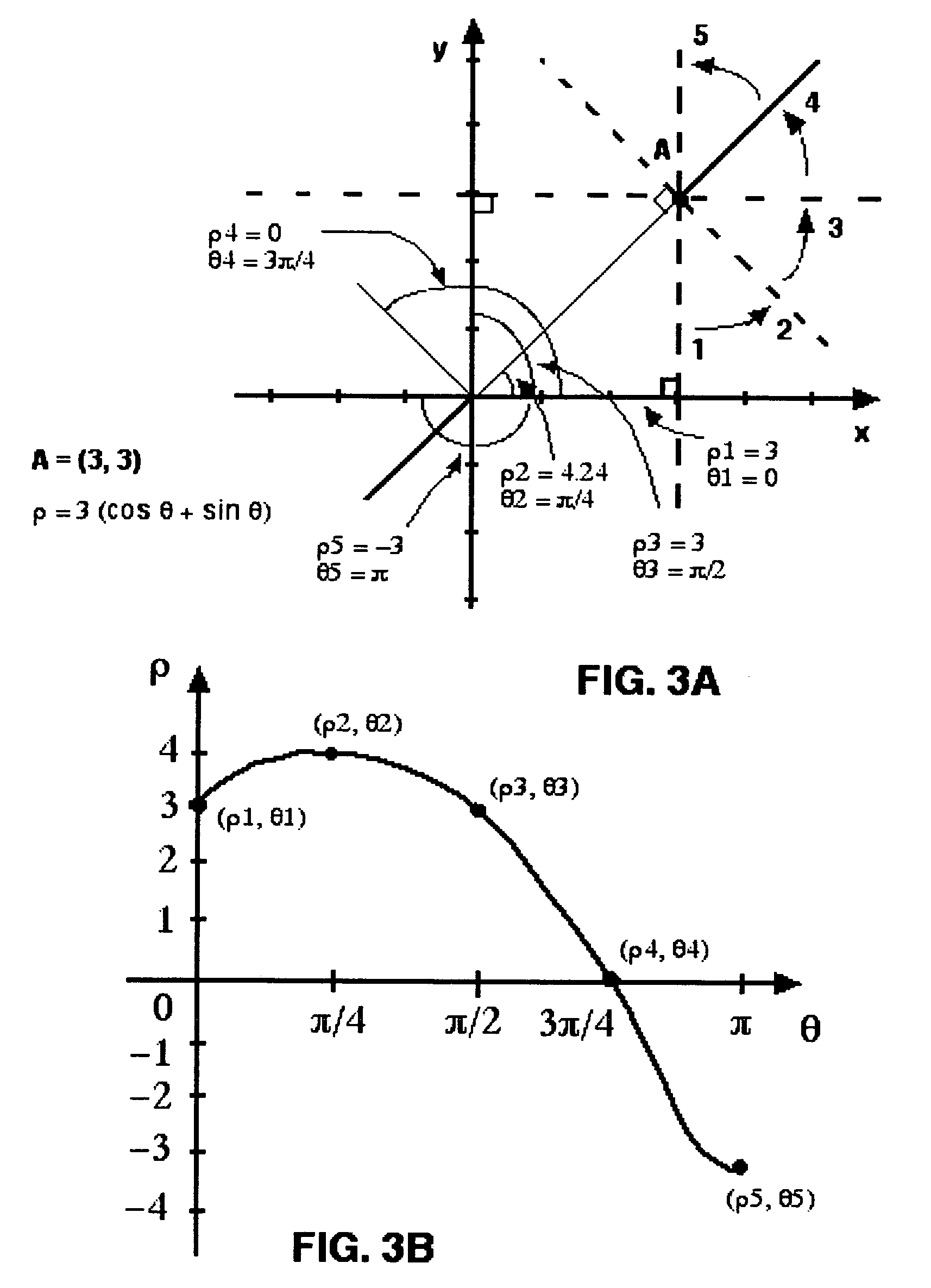Method of image analysis using sparse hough transform
a sparse hough transform and image analysis technology, applied in the field of image analysis, can solve the problems of difficult identification of features of interest, partially obscures the features of interest, and is not well suited for applications with limited processor and/or memory resources
- Summary
- Abstract
- Description
- Claims
- Application Information
AI Technical Summary
Benefits of technology
Problems solved by technology
Method used
Image
Examples
Embodiment Construction
[0023]Referring to FIGS. 6-8, an embodiment of the present invention relates to a method or system 10 for analyzing a digital image 11. Typically, the image 11 will include a plurality of image pixels 12 arranged in an array 14. In carrying out the method, a number of pixels 16 in the array are pseudo-randomly selected, e.g., by way of an algorithm 18 for pseudo-randomly selecting cells in an array. The selected pixels 16 are processed according to a Hough or other parameterization transform 20. (By “parameterization transform,” it is meant a mathematical algorithm / transform such as a Hough or Radon transform, as described above, where data is converted / transformed from one form, e.g., x-y coordinates in Cartesian space, to another form that facilitates identification of features in the original data, e.g., line normal parameters in Hough space.) The number of pixels selected and processed is less than the total number of pixels in the image 11. The Hough transform 20 is inherently ...
PUM
 Login to View More
Login to View More Abstract
Description
Claims
Application Information
 Login to View More
Login to View More - R&D
- Intellectual Property
- Life Sciences
- Materials
- Tech Scout
- Unparalleled Data Quality
- Higher Quality Content
- 60% Fewer Hallucinations
Browse by: Latest US Patents, China's latest patents, Technical Efficacy Thesaurus, Application Domain, Technology Topic, Popular Technical Reports.
© 2025 PatSnap. All rights reserved.Legal|Privacy policy|Modern Slavery Act Transparency Statement|Sitemap|About US| Contact US: help@patsnap.com



